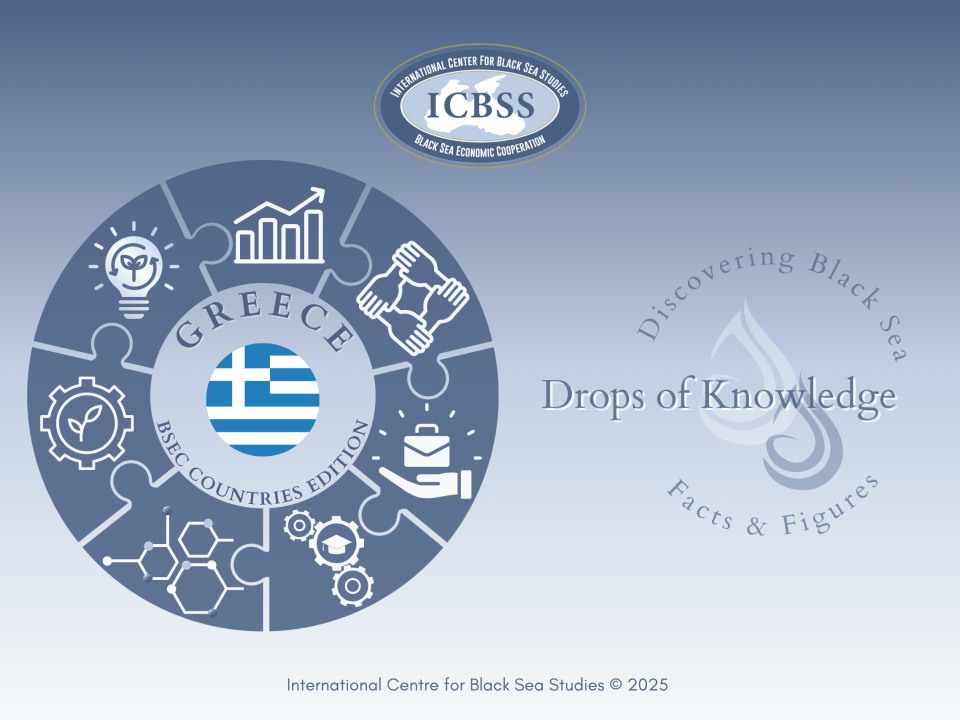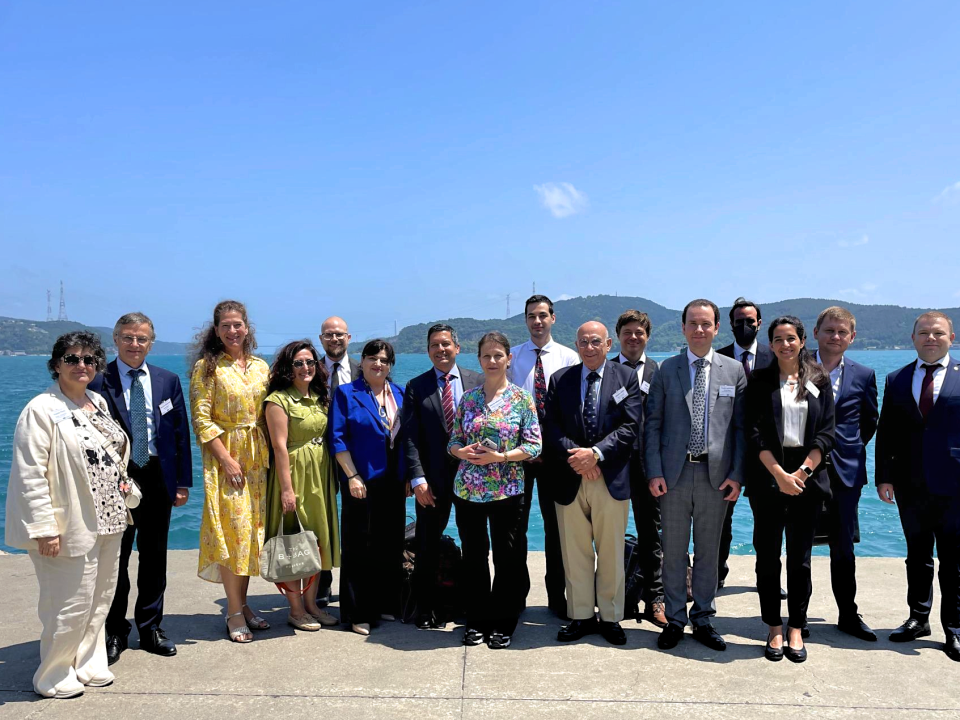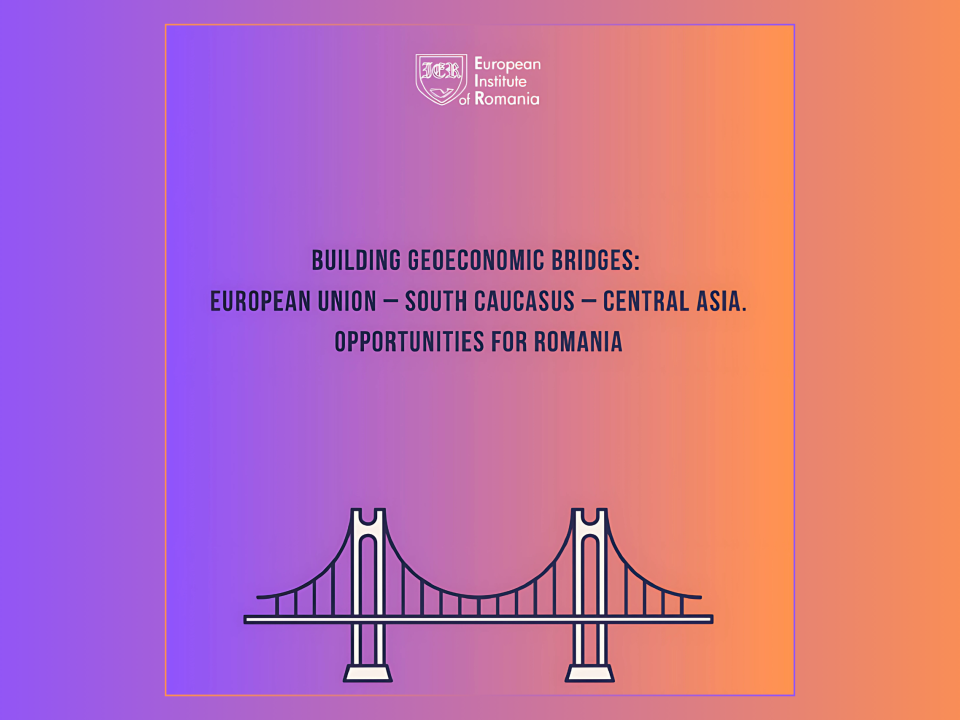
Invitation to the Round-table Discussion on “Energy security in Europe: Current situation, challenges and future opportunities”
Hybrid event by the ICBSS and AIR Center (Athens, Greece & online)
Registration is now open HERE
The Center of Analysis of International Relations (AIR Center) of Azerbaijan and the International Centre for Black Sea Studies (ICBSS) co-organise a Round-table Discussion on “Energy security in Europe: Current situation, challenges and future opportunities”. Renowned energy experts and policy-stakeholders from the EU MS and Eastern Partnership countries will exchange views on the current situation and the future of energy security for the European countries, placing emphasis on the Southern Gas Corridor (SGC). The event will be held in English, in a hybrid format (Athens & online).
Date: Monday, June 27th, 2022
Hours: 09:30-13:00
Venue: Amalia Athens Hotel, Athens-Greece
Concept Note
How is the European Union acting to secure its energy future? The European Green Deal aims to support the EU’s clean energy transition by decarbonizing its energy system. Currently, the production and use of energy account for more than 75 percent of the EU’s greenhouse gas emissions. Therefore, a rapid switch to clean energy will be challenging, and Europe’s natural gas dependency will be high on the agenda.
Natural gas is an important energy resource for Europe’s economic development, and EU member states are highly dependent on foreign energy suppliers, including Russia and countries in the Middle East and Africa. It is important to underline that energy-starved Europe currently depends primarily on Russian natural gas. The current crisis raises very important questions about how to reduce dependence on Russian natural gas in the near future. The European Commission is accelerating the diversification process and, according to EU officials, around fifty bcm a year will come from new sources of liquified natural gas (LNG), ten bcm will come through pipelines from other suppliers, and twenty bcm will come from new wind energy capacity that will reduce the demand for gas-fired power stations. In this regard, Europe has started to look for alternative and reliable natural gas supplies. The EU has already talked to energy partners such as Qatar, the United States, Nigeria, Egypt, and Azerbaijan about increasing natural gas supplies if Moscow cuts gas deliveries. These countries have the potential to support Europe’s energy security by stepping up natural gas supplies to the continent.
In the end, Azerbaijan has proved itself to be a reliable energy partner for Europe. An important inter-regional energy project, the Southern Gas Corridor (SGC), has been finalized. In 2021, as well as in January of the current year, more than 18.5 billion cubic meters of natural gas was exported through the Southern Gas Corridor to consumers in Georgia, Turkey, and Europe. During this time, only European countries have been provided with approximately 8.9 billion cubic meters of Azerbaijani natural gas under long-term contracts, as well as short-term spot operations. Azerbaijan has the potential to increase gas deliveries to Europe by using its gas reserves in the Caspian Sea as well as accessing natural gas sources from other countries.
The event builds on the discussions on energy launched in the Regional Stakeholders Conference “Black Sea Synergy: the way forward” (Athens, 7 November 2019), organised by the ICBSS within the framework of the ENI East Instrument. The results of the event are presented in the ICBSS Policy Paper ‘Black Sea Synergy: the way forward’ that sets the basis for a constructive follow-up with thematic workshops and project-oriented synergies in the targeted cooperation fields.
For online participation, please register HERE.
Certificates of attendance are provided following request.
***
About the Organisers:
Founded in 1998, as a non-profit organization, the ICBSS is a research and training institution focusing on the wider Black Sea region and a related body of the Organisation of the Black Sea Economic Cooperation (BSEC), and its think-tank.
ICBSS capitalizes on its dual role to advance effective synergies between scientific and advocacy work, at both regional and international levels. Through its diverse activities, the Centre aims to enhance knowledge, empower people and enable synergies in the wider Black Sea region both within and beyond its boundaries.
Established in Baku, in 2019 the Center of Analysis of International Relations (AIR Center) is a think tank, which provides strategic insights and policy recommendations on international affairs, thus making decision-makers, as well as experts in the field better equipped in analyzing outstanding issues. Its mission is to conduct a comprehensive analysis of global and regional processes and expand activities aimed at raising the international community’s awareness of Azerbaijan’s foreign policy priorities.




